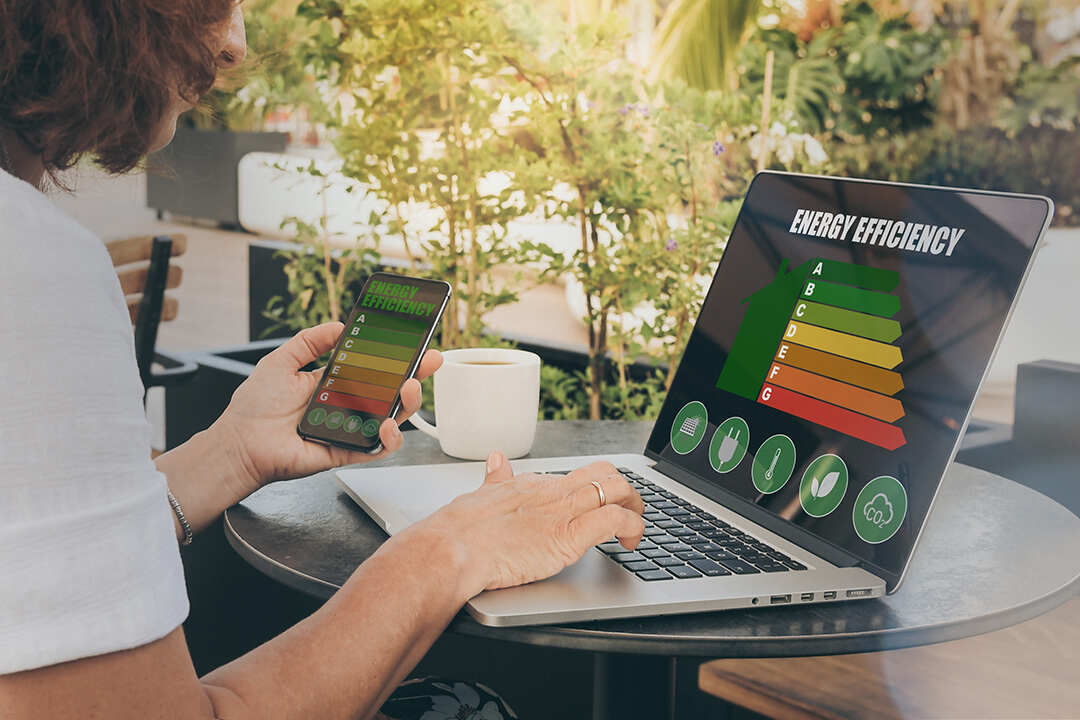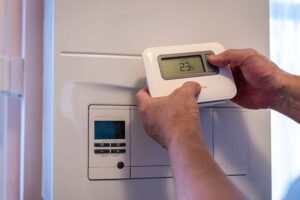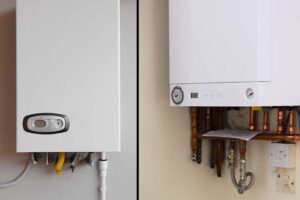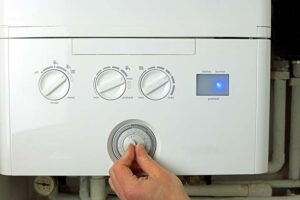Every year, the world uses about 580 million terajoules of energy, equivalent to 13.8 billion tonnes of oil. This number keeps increasing, and it’s expected to increase by 30% by 2040.
People used to put off thinking about the effects of energy sources. But the day has come for people, groups, and companies worldwide to take this matter seriously. The most critical question is how to use energy efficiently.
No business can afford to waste any of this energy now that they know how much it costs and how lousy fossil fuels are for the climate. Focussing on energy efficiency means getting the most out of every bit of energy you use. This is the only way to reach your goal without reducing production capacity or uptime.
A solid resolve to use energy efficiently can help anyone significantly. Energy efficiency saves you money and helps your assets last longer. It also enables you to reach climate goals like the Net Zero target.
Next, this guide will discuss what it means to be energy efficient and why it’s essential.
What is an Energy Efficiency Rating?
An energy-efficiency rating is a score given to a building or device. That considers its general energy efficiency, such as how much energy it uses. And how well it keeps heat in or out, the quality of the building materials, and more.
Experts in diverse domains, from architecture to environmental protection, utilise distinct energy-efficiency categories. While some are more common and well-known, no “main” scoring system or single governing body appears nationally. As a result, there aren’t many clear standards among different organisations regarding marking methods or how and why these ratings are given. The energy economy is generally measured in numbers, letter scores, or numerical values, depending on the agency.
Energy efficiency is also vital for the financial health of a corporation. Inefficient energy is precisely like loss of energy. And if you’re buying power that isn’t directly growing your sound output, you might as well be burning money.
Inefficient energy usage also strains your buildings and equipment. And it lowers their valuable lives and increases upkeep and replacement costs.
Understanding the EPC Rating Scale
An Energy Performance Certificate (EPC) number is a numerical measure of a property’s energy efficiency. It offers valuable insights into how efficiently a property uses energy. And it also gives suggestions for boosting its energy performance. These ratings range from A to G, with ‘A’ being the highest grade.
The EPC Rating Scale | ||
Grade | Points | Value |
A | 92-100 points (most efficient) | Very efficient; lowest running costs |
B | 81-91 points | Highly efficient; meagre running costs |
C | 69-80 points | Good efficiency; low running costs |
D | 55-68 points | Average efficiency; standard running costs |
E | 39-54 points | Below average efficiency; higher running costs |
F | 21-38 points | Poor efficiency; very high running costs |
G | 1-20 points (least efficient) | Extremely poor efficiency; highest running costs |
Why is Being Energy Efficient Important?
There are many good reasons to try for better energy efficiency. Here are the most important benefits:
- Eliminating bad environmental impact—A significant part of energy efficiency is reducing carbon emissions by switching from fossil fuels to renewable energy sources. Renewable energy is the most effective source for decarbonising.
- Lowering running costs—Energy wastage is a cost that serves no business purpose. Increasing efficiency gives the best value out of your energy spending. This is more crucial than ever, considering that energy costs keep increasing.
- Increasing asset durability—Inefficient energy usage affects every power-based business asset. This is especially true for companies. That uses significant amounts of power on a big scale, such as internet providers, data centers, and industrial facilities. Efficient energy usage lowers the wear and tear on these assets. And it will also increase their useful life and reduce the costs of keeping them.
Energy saving can also make your spaces safer and cleaner. It also improves your property’s public image and raises the market value of your assets.
Essential Energy Optimisation Tips
Estimating your energy efficiency and asset performance is critical. Still, the only way to increase efficiency is to take action and change everything.
When you have a clear picture of how your energy is used and where it’s being lost. You can surely devise a plan to improve your property’s general energy efficiency.
Some areas of improvement will be revealed through easy calculations and control. Others might require deeper analytics. Each way, you can improve efficiency in nearly every situation.
Here are three of the best tips for improving your energy efficiency:
Automate the Workflow
Tools that simplify energy management processes can play a crucial role in improving energy efficiency. Manual processes can fall short of optimum efficiency due to a lack of planning and delayed action. And other issues resulting from simple human mistakes. Automated, centralised energy management systems ensure that regular jobs are carried out with perfect clarity and time. This can help multiple teams work together with accurate data. It also involves sharing insight into your energy system and the processes that depend on it.
Adopting Renewable Energy Sources
Improving the energy efficiency inside a system helps to employ energy sources that are inherently more efficient in creating electricity. Renewable, sustainable energy sources are meant to store surplus output. They can also reuse waste energy, offering considerable gains in efficiency over fossil fuels while being cleaner and safer for the environment.
Green energy sources, including heat pumps, solar panels, wind turbines, and biomass fuel, can increase energy efficiency. Solar and wind are the most cost-effective of these. It’s also helpful to boost these sources with fuel cells and batteries. That can supplement and store energy, allowing you to match demand with output and reduce loss.
Monitor Energy Usage Remotely
Smart energy solutions combine automation with online tracking provide the highest level of oversight and control over a system. Remote tracking solutions give managers real-time insight into the workings of an energy system. They also regularly monitor the effectiveness of energy assets to spot flaws, failures, and other problems immediately as they develop.
An online tracking system can reduce expensive in-person site checks. And they can solve issues like software changes and load balance when you become aware of them. The right solutions will also provide visible screens and data tools. That makes it easy to see whether you meet your internal performance standards.
ECO4 Scheme’s Role in Energy Efficiency
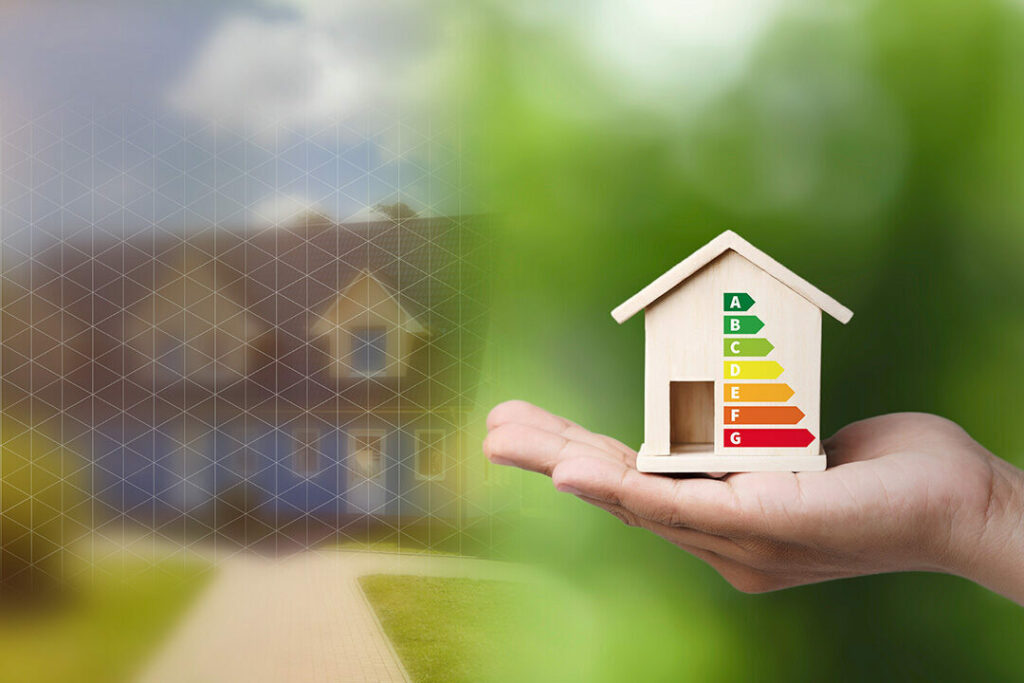
The ECO4 Scheme is a vital government effort to improve energy efficiency and reduce fuel poverty in lower-income families. Regulated by Ofgem, it follows past ECO steps with new measures and qualifying conditions.
The ECO4 Scheme, or Energy Company Obligation Phase 4, is meant to help improve the energy efficiency of homes in the UK, especially for needy groups. It focuses on energy-saving measures such as insulation, heating systems, and green energy devices. ECO4 is not just a continuation but an increase in funds and scope, trying to provide more complete help to homes that most need it. It will enhance your home’s EPC rating, it is below D.
ECO4 energy-saving measures like insulation, heating systems, and green energy choices aim to improve energy savings and lower house carbon pollution. Let’s look into the details of each:
Insulation Solutions
Proper insulation significantly boosts a home’s energy efficiency. ECO4 offers a choice of insulation options, including loft insulation, cavity wall insulation, and solid wall insulation. Each type tackles specific places of heat loss in a building.
- Loft Insulation: Adds a thermal shield in the roof, stopping heat from leaving.
- Cavity Wall Insulation: Fills the gaps between walls, lowering heat loss through walls.
- Solid Wall Insulation: Ideal for older homes with solid walls, giving outer or internal insulation layers.
These solutions lower energy bills and make living more comfortable by keeping regular indoor temperatures.
Heating Systems & Renewable Heating Options
Upgrading heating systems is vital for boosting a home’s energy efficiency. ECO4 focuses on building energy-efficient boilers, smart heating controls, and heat pumps.
- Energy-Efficient Boilers: These modern boilers are made to use less fuel and create lower pollution.
- Smart Heating Controls: These include controlled thermostats and zoned heating. These offer perfect control over heating and lead to energy savings.
- Heat Pumps: Transfer heat from the ground or air to provide efficient home warmth.
These changes ensure more efficient heating and lower fuel waste. And it can reduce energy bills.
Summary
Understanding the importance of energy efficiency ratings is vital for homes. Thus, they can improve their home’s energy efficiency and take valuable measures. A high energy efficiency rating will result in lower energy bills and less environmental damage. And it can provide more value for the property.
The ECO4 scheme also supports low-income families in developing their EPC ratings. It provides financial assistance for necessary home heating upgrades. Hence, homeowners can use these initiatives in several ways, plus some practical advice to enable individuals to have a greener future by contributing to an energy-efficient home.


